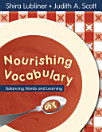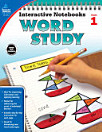Vocabulary Assessment to Support Instruction: Building Rich Word-Learning Experiences
Jun 2017 · Guilford Publications
Ebook
254
Pages
family_home
Eligible
info
reportRatings and reviews aren’t verified Learn More
About this ebook
Vocabulary development is essential for learning, but conventional vocabulary assessments lack the range and flexibility to support K–12 classroom teachers in making instructional decisions. Drawing on linguistics, educational psychology, and educational measurement, this book offers a fresh perspective on word learning and describes powerful, precise assessment strategies. Guidelines are presented for selecting which words to teach, evaluating the depth and richness of students' word knowledge and their ability to apply it in complex contexts, designing effective instructional practices, and using technology to create adaptive and scalable assessments. User-friendly features include sample test items, classroom examples, a glossary, and suggested print and online resources.
About the author
Margaret G. McKeown, PhD, is Clinical Professor of Education in the School of Education and a Senior Scientist at the Learning Research and Development Center at the University of Pittsburgh. Her work addresses practical, current problems that classroom teachers and their students face. Dr. McKeown has conducted research in the areas of instructional design and teacher professional development in reading comprehension and vocabulary. She is a recipient of the Outstanding Dissertation of the Year Award from the International Literacy Association and a National Academy of Education Spencer Fellowship. Prior to her career in research, Dr. McKeown taught reading and language arts in elementary school. She is coauthor of books including Bringing Words to Life, Second Edition, and Creating Robust Vocabulary.
Paul D. Deane, PhD, is a Principal Research Scientist in Research and Development at Educational Testing Service (ETS). He has published extensively on lexical semantics, vocabulary assessment, writing assessment, and principles of assessment design. His research on vocabulary assessment has focused on developing methods to measure different aspects of vocabulary depth and breadth. During his career at ETS, Dr. Deane has also played a key role in the Cognitively Based Assessments of, for, and as Learning (CBAL) research initiative, where he led the development of learning progressions and assessment designs for English language arts, including vocabulary assessment.
Judith A. Scott, PhD, is Associate Professor in the Department of Education at the University of California, Santa Cruz. Her work addresses vocabulary acquisition and blending vocabulary instruction with effective teacher education within the context of language, literacy, and culture. Dr. Scott has been the lead researcher on three federally funded vocabulary research projects, including one focused on innovation in vocabulary assessment. She is a recipient of the John C. Manning Public School Service Award from the International Literacy Association. She also serves as a consultant for technology companies, helping them with educational applications and assessment.
Robert Krovetz, PhD, an independent researcher and consultant based in New Jersey, has consulted for Educational Testing Service on projects to improve the assessment of vocabulary breadth and depth. He has published more than 30 papers, including one on morphology and information retrieval that has been cited by more than 700 other papers and was ranked by Citeseer as one of the 100 most-cited papers of the year in computer science. Dr. Krovetz has given invited talks at the American Society for Information Science and the Association for the Advancement of Artificial Intelligence symposium on Text-Based Intelligent Systems. Previously he was a scientist at the NEC Research Institute and a senior research scientist at Ask Jeeves.
René R. Lawless, EdM, is a Principal Research Associate in Research and Development at Educational Testing Service. Her research has focused on the creation of measures of students’ breadth and depth of vocabulary knowledge, second-language acquisition of vocabulary, evidence-centered design, and fairness across assessments. Ms. Lawless is currently working on fairness projects for cultural and linguistic minorities, for which she has coauthored multiple white papers, and is lead author of fairness guidelines for the International Test Commission.
Paul D. Deane, PhD, is a Principal Research Scientist in Research and Development at Educational Testing Service (ETS). He has published extensively on lexical semantics, vocabulary assessment, writing assessment, and principles of assessment design. His research on vocabulary assessment has focused on developing methods to measure different aspects of vocabulary depth and breadth. During his career at ETS, Dr. Deane has also played a key role in the Cognitively Based Assessments of, for, and as Learning (CBAL) research initiative, where he led the development of learning progressions and assessment designs for English language arts, including vocabulary assessment.
Judith A. Scott, PhD, is Associate Professor in the Department of Education at the University of California, Santa Cruz. Her work addresses vocabulary acquisition and blending vocabulary instruction with effective teacher education within the context of language, literacy, and culture. Dr. Scott has been the lead researcher on three federally funded vocabulary research projects, including one focused on innovation in vocabulary assessment. She is a recipient of the John C. Manning Public School Service Award from the International Literacy Association. She also serves as a consultant for technology companies, helping them with educational applications and assessment.
Robert Krovetz, PhD, an independent researcher and consultant based in New Jersey, has consulted for Educational Testing Service on projects to improve the assessment of vocabulary breadth and depth. He has published more than 30 papers, including one on morphology and information retrieval that has been cited by more than 700 other papers and was ranked by Citeseer as one of the 100 most-cited papers of the year in computer science. Dr. Krovetz has given invited talks at the American Society for Information Science and the Association for the Advancement of Artificial Intelligence symposium on Text-Based Intelligent Systems. Previously he was a scientist at the NEC Research Institute and a senior research scientist at Ask Jeeves.
René R. Lawless, EdM, is a Principal Research Associate in Research and Development at Educational Testing Service. Her research has focused on the creation of measures of students’ breadth and depth of vocabulary knowledge, second-language acquisition of vocabulary, evidence-centered design, and fairness across assessments. Ms. Lawless is currently working on fairness projects for cultural and linguistic minorities, for which she has coauthored multiple white papers, and is lead author of fairness guidelines for the International Test Commission.
Rate this ebook
Tell us what you think.
Reading information
Smartphones and tablets
Install the Google Play Books app for Android and iPad/iPhone. It syncs automatically with your account and allows you to read online or offline wherever you are.
Laptops and computers
You can listen to audiobooks purchased on Google Play using your computer's web browser.
eReaders and other devices
To read on e-ink devices like Kobo eReaders, you'll need to download a file and transfer it to your device. Follow the detailed Help Center instructions to transfer the files to supported eReaders.





